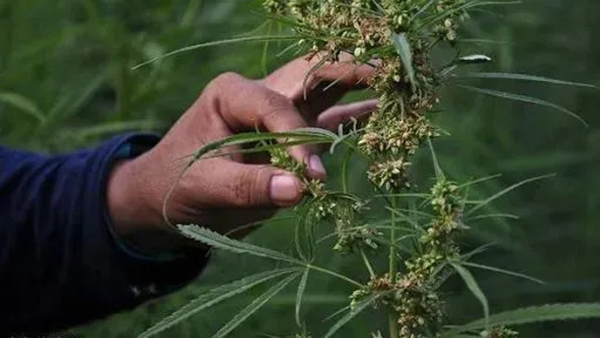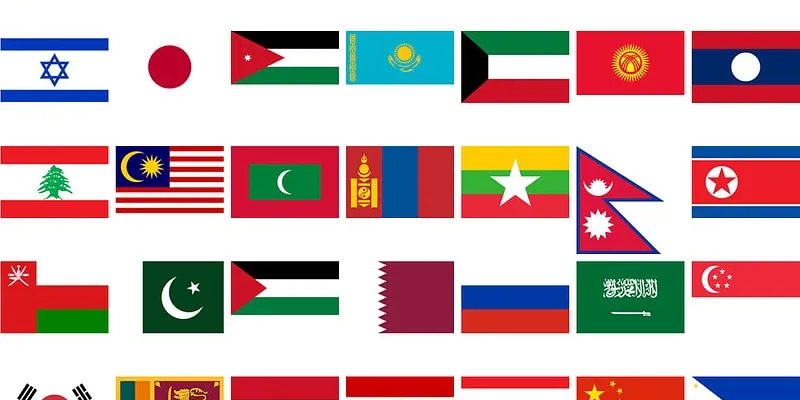CBD is clearly not hallucinogenic, so why do countries have to establish norms? Industrial hemp is grown legally in many countries because of its low THC content. The use of industrial hemp to extract other cannabinoids, such as CBD, will be closely monitored to prevent THC from entering the market.
Therefore, even if CBD extracted from industrial hemp is used, ordinary consumers will still have doubts about whether it is a “drug”. CBD is becoming a popular cosmetic and beauty product in Asia, but this product is still restricted in many Asian countries/regions. Why is that?
Let’s take a look at the current regulations in Asian countries/regions.
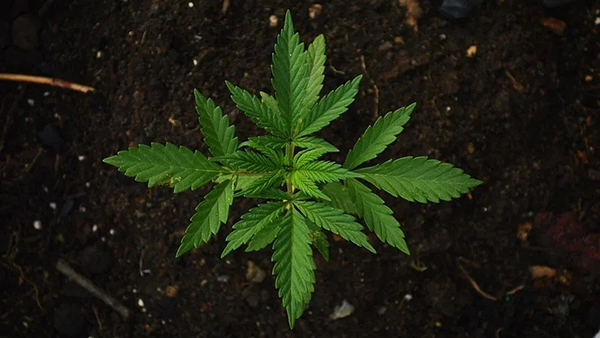
1. China
Regulations: limited
After being banned for 25 years, China allowed cannabis cultivation in two Chinese provinces (Yunnan and Heilongjiang) in 2010. In 2018, Jilin became the third province to approve cannabis cultivation.
In China, CBD is not on the drug list. Chinese officials say that as long as its THC limit is 0.3%, it is legal. Currently, China’s CBD is allowed to be used in cosmetics, but it cannot be used as a food additive or health food.
According to the Food Safety Law, food and food additives imported into China must have Chinese labels and specifications, that is, they must have an import license.
Although there are no special penalties for importing CBD products for external use, there may be penalties for importing CBD foods-so if you live in China, please avoid ordering gummies, beverage mixes and other CBD foods.
2. Japan
Regulations: gray area
Japan’s “Cannabis Control Law” defines industrial hemp as hemp plant (Cannabis sativa L.) and its products. This definition does not include mature industrial hemp stems and products (but not resins) and hemp seeds and products.
In Japan, CBD derived from industrial hemp is legal, but it cannot contain any THC. In early 2019, the Ministry of Health authorized CBD (Epidiolex) to be used in medical trials for patients with epilepsy.
When buying CBD in Japan, you should look for companies that sell pure CBD isolates. Currently, almost no company allows the export of CBD to Japan.
There are two types of licenses to legally grow industrial hemp in Japan:
License to grow low-THC hemp (<1%) for fiber and seeds, but does not include hemp cultivation for medicinal use
Scientific research license (it is difficult to obtain this license)
3. Korea
Regulations: legal for medical use
Hemp is one of the oldest crops in Korea. As long as it is used for fiber and seeds (protein powder, hemp seed oil and hemp seed nuts), the cultivation of industrial hemp is legal. If farmers want to grow industrial hemp, they must obtain government permission.
South Korea’s CBD is only legal for medical use and is under the supervision of the Ministry of Food and Drug Safety (MFDS). The National Assembly revised the Narcotics Control Law in November 2018 to allow the import of CBD for medical purposes.
The import license for medicinal CBD can be obtained from the Korean Orphan Drug Center as appropriate. If you are a patient, you can import CBD in Korea after obtaining a doctor’s prescription and permission from the Korean Prescription Drug Center. If there is no permission, the CBD is illegal. Any behavior related to marijuana or products containing THC can be sentenced to jail.
4. Malaysia
Regulations: legal for medical use
From countries that impose the death penalty on marijuana owners to countries that recognize the benefits of CBD, Malaysia’s courage is really impressive! The Malaysian government allows the cultivation of hemp for research purposes, but only uses it for fiber and seeds, and prohibits the cultivation and processing of hemp for medical or commercial purposes.
However, government-licensed retailers and companies can sell CBD after their products undergo a series of rigorous tests and meet legal standards. The possession of marijuana and its processing are still severely punished, but the government is discussing the abolition of the death penalty.
Note: Do not purchase any CBD products unless you are sure that the retailer has obtained permission to sell CBD. If you want to buy industrial hemp products, you should apply to the pharmaceutical department. If the pharmacy thinks the product is safe and effective, then they will allow you to buy it.
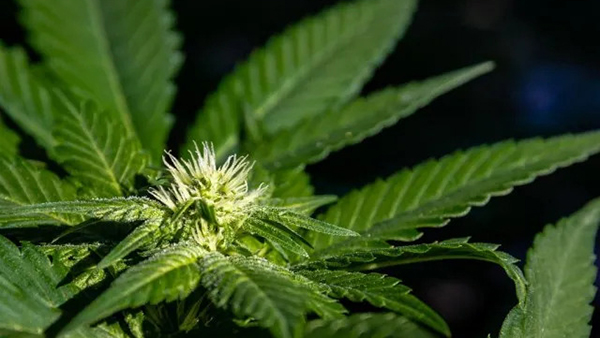
5. Singapore
Regulations: prohibited
Singapore has strict laws on marijuana, and any illegal activities related to the plant will not be tolerated. Crimes involving the use, production, sale or transportation of marijuana will be punishable by high fines, imprisonment and even death penalty.
In early 2019, Singapore’s Ministry of Home Affairs and Ministry of Health reached a consensus on cannabinoids and their potential health benefits for patients with severe epilepsy and epilepsy. On the other hand, they emphasized that hemp and its products are still subject to strict Singapore laws. We recommend that you do not import any illegal products (including industrial hemp products) into Singapore.
6. Taiwan
Regulations: legal applications for personal use
Food and Drug Day issued an announcement stating that currently Taiwan’s medical cannabinoid preparations have different management regulations due to their different ingredients. Those that only use cannabidiol (CBD) as the ingredient are not controlled drugs. However, at present, no drugs containing CBD ingredients have been approved in the country. If the public prescribes such drugs after diagnosis and evaluation by doctors, they can apply for the import of CBD drugs for personal use under the “Administrative Measures for Drug Sample Gifts”. As for medicines containing tetrahydrocannabinol (THC) or products made from mature cannabis stems and seeds, if the THC content exceeds 10 ppm, they are classified as second-level controlled drugs.
7. Hong Kong
Regulations: restricted
Hong Kong prohibits cannabis cultivation. The maximum penalty for growing any cannabis plant is a fine of 100,000 Hong Kong dollars (approximately US$12,750) and 15 years in prison.
However, CBD is not a controlled substance. The “Dangerous Drugs Regulations” listed THC and any marijuana plant containing THC as illegal, so as long as its THC content is equal to zero, CBD is legal.
The Government Food Safety Center confirmed that CBD is not a dangerous drug. Officials said in a statement that consumers should be cautious when importing or ordering CBD food and beverages online because the products may contain THC. To avoid any problems, please look for products that sell CBD isolate (THC is 0%).
8. Thailand
Regulations: legal for medical use
Thailand’s CBD can be legally used for medical purposes, but it must be THC free. In other words, it is legal to buy CBD products through a doctor’s prescription.
9. Vietnam
Regulations: prohibited
Vietnam has a long history of cannabis, but its use and sale are prohibited by law. The government has discussed the legalization of medical CBD, but there is no news yet.
10. Philippines
Regulations: legal for medical use
The Philippines strictly prohibits cannabis and its derivatives. There is one exception: People with terminal illnesses can apply to the Food and Drug Administration (FDA) for special permission to use cannabis-based drugs (including CBD oil). Although the rule was introduced in 1992, the stigma surrounding marijuana still exists.
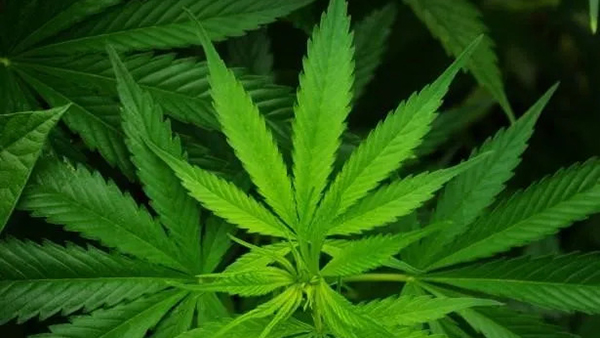
11. Afghanistan
Regulations: prohibited
Historically, cannabis was cultivated freely in Afghanistan until King Zahir Shah made the plant illegal in 1973 and imposed severe penalties, including long imprisonment and death penalty. Cannabis in Afghanistan has an important cultural role. Even today, the locals still use cannabis, especially Sativa. However, the use and cultivation of cannabis has been banned since 1973. CBD is illegal in Afghanistan, and any actions related to it may lead to severe penalties.
12. Bangladesh
Regulations: prohibited
Cannabis in Bangladesh is completely banned, and its derivatives are also banned. Possession and use of marijuana will be subject to severe penalties, including the death penalty.
13. Bhutan
Regulations: prohibited
In Bhutan, CBD is no different from cannabis, and possession, sale and use are all illegal.
14. Cambodia
Regulations: prohibited
Cannabis is widely used in Cambodia, but it is still prohibited by law. Do not buy any illegal marijuana products-it is said that Cambodia often tolerates the use of marijuana, but the penalties for possession and use of marijuana are severe and you may go to jail.
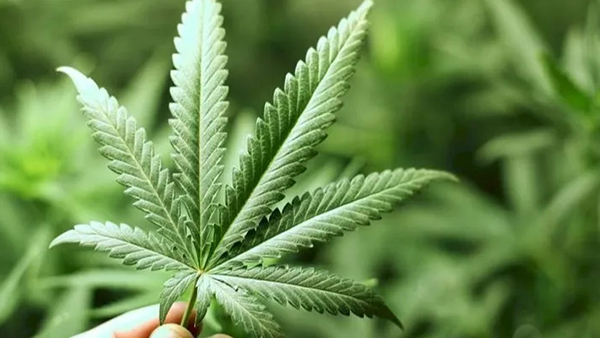
15. India
Regulations: legal gray Area
The Indian federal government allows its states to formulate their own cannabis cultivation rules. India is currently formulating new regulations to regulate hemp (<0.3% THC) as a crop. In July 2018, Uttarakhand State authorized the Indian Industrial Hemp Association (IIHA) to grow hemp.
Uttar Pradesh is the second state to allow cannabis research and cultivation. Although modern governments have not formally clarified the legality of CBD, India has used real hemp since ancient times. Ayurveda, Yoga and Naturopathic Department, Unani, Siddharth, Suva Riggpa and Homeopathy Department (AYUSH) support research on CBD-rich hemp varieties. According to AYUSH officials, cannabis is one of the five important medicinal plants in the Vedas (religious documents).
In 2017, the government authorized the Council for Scientific and Industrial Research (CSIR) to grow cannabis for medical and scientific research. CSIR cooperates with Bombay Hemp Company (BOHECO). The committee is developing three cannabis-based drugs that will treat cancer, epilepsy and sickle cell anemia.
India currently does not have a formal ban or license to use CBD, which means that CBD is a gray area. One should be cautious when buying CBD in India.
16. Indonesia
Regulations: prohibited
Since 1927, Indonesia has banned cannabis and all its derivatives are illegal. Do not buy any hemp products in Indonesia, even those with low THC content.
17. Iran
Regulations: prohibited
Iran’s cannabis culture is rooted in the country’s traditions, and this plant is widely used and cultivated. The current law prohibits its cultivation, and its use, possession and sale shall be subject to high fines and even death penalty. The government has discussed possible decriminalization, but there is no specific bill to regulate this. The Iranian government mentioned that CBD is no different from marijuana and is illegally traded. Although you will hear many stories about marijuana consumption, it is best not to buy any illegal marijuana or marijuana products, otherwise you may end up paying a huge fine or even being imprisoned.
18. Iraq
Regulations: prohibited
Cannabis in Iraq has been completely banned, and the ban includes its cannabis derivatives.
19. Israel
Regulations: legal for medical use
Israel is a world leader in CBD research and development, but it is still strictly regulated. Until recently, the Ministry of Health opposed the full legalization of CBD-cannabinoids only apply to patients who directly apply for medical permits from the Ministry of Health.
In 2018, the health authorities changed their position and allowed public service physicians to issue medical marijuana licenses and prescriptions. Several government-licensed pharmacies now sell medical CBD.
Note: The CBD isolate prescribed by the doctor does not contain THC, so full-spectrum CBD cannot be purchased in Israel at present.
The imported CBD is currently in the grey restricted area. The Israeli police say that CBD is not among the dangerous drugs, so they do not take any action against individuals who import CBD. The police also pointed out that possessing a CBD isolate is not illegal.
On the other hand, the customs stated that it will act in accordance with the regulations of the Ministry of Health-the health authorities consider CBD illegal and oppose its import. Therefore, if you currently live in Israel, it is not recommended to import hemp CBD products.
20. Laos
Regulations: prohibited
In Laos, hemp has been completely illegal until October 2019, when the government permitted an Australian company to grow hemp for medicinal purposes, but most of the plant will be exported. At the same time, the country is studying the therapeutic uses of marijuana and proposes to establish a hospital to treat cancer with traditional cannabis-based drugs. However, it is still illegal to own and use any cannabis and its derivatives.
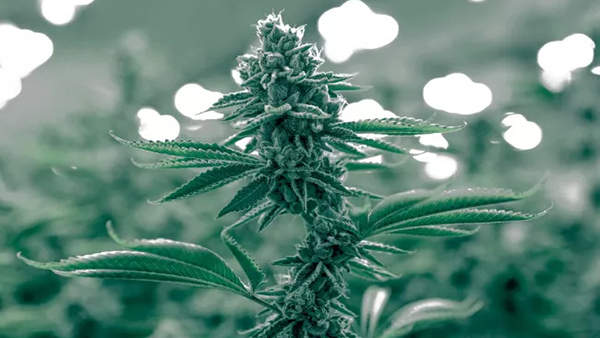
21. Mongolia
Regulations: prohibited
The Mongolian government allows cannabis cultivation for research purposes and CBD extraction, but only one company has obtained the license. Currently, CBD appears to be still illegal, and the company will only export the hemp-derived CBD produced.
22. Myanmar
Regulations: prohibited
Myanmar’s law does not distinguish industrial hemp from hemp, and prohibits the use and cultivation of industrial hemp. The country receives the most severe penalties for possession of marijuana, and being caught in a small amount can put you in prison for five years. Burma will be sentenced to death for possessing and trafficking large amounts of marijuana.
23. Nepal
Regulations: prohibited
Nepal has not yet defined its cannabis law-technically, the law is illegal, but certain territories in Nepal allow cultivation under government-issued licenses. Although hemp is in a legal gray area, locals believe that CBD is no different from hemp and is not allowed to be used.
24. North Korea
Regulations: prohibited
North Korea is a mystery.
